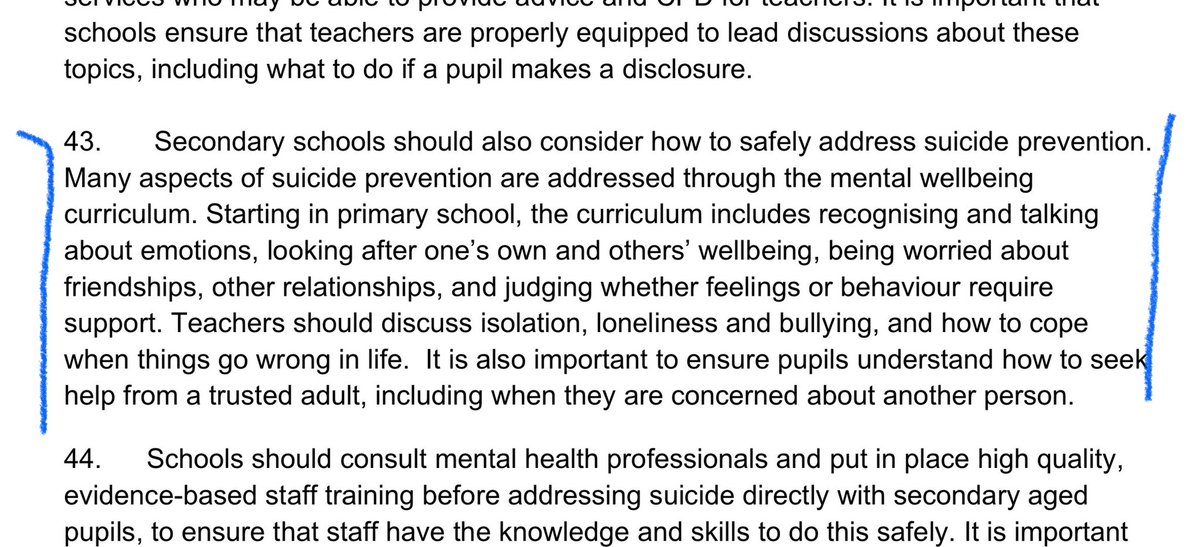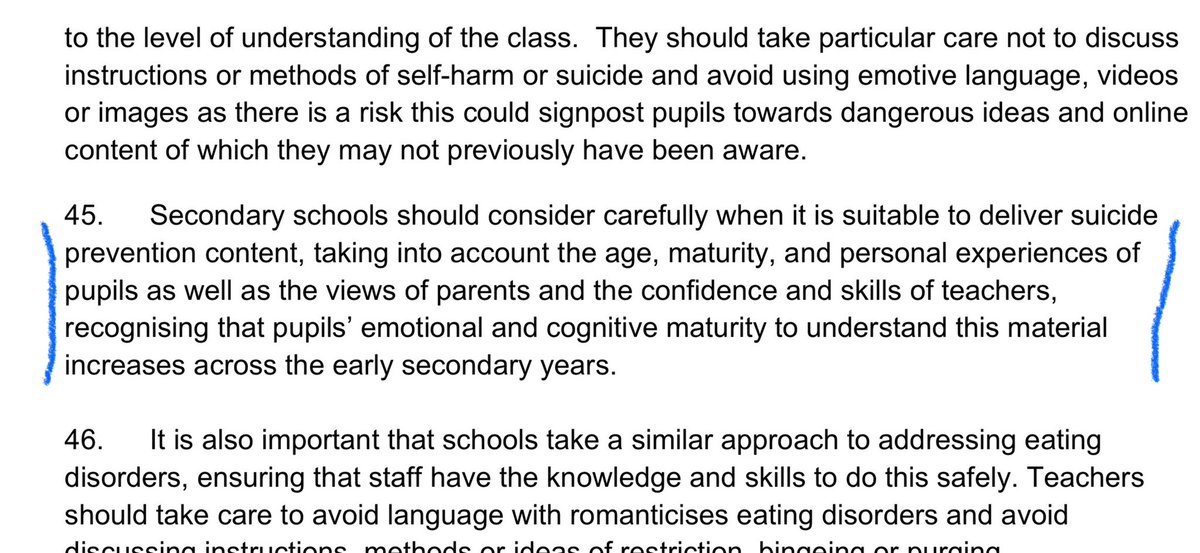Plenty of justified outrage following #BBCPanorama’s film of staff abusing patients in a secure mental health unit.
It made headline news. Investigations are under way. Staff have been suspended.
But outrage alone will not prevent a repeat.
Short 🧵 & TW.
It made headline news. Investigations are under way. Staff have been suspended.
But outrage alone will not prevent a repeat.
Short 🧵 & TW.
Many felt weary over a too-familiar story.
That was my reaction. 5y ago I wrote about how my mother was assaulted in a care home - the perpetrator was erased from their professional register thanks to evidence from other staff.
No action was taken against the care home itself.
That was my reaction. 5y ago I wrote about how my mother was assaulted in a care home - the perpetrator was erased from their professional register thanks to evidence from other staff.
No action was taken against the care home itself.
Individual responsibility is important here. No-one should excuse the member of staff who treats a patient cruelly.
But abuse takes place in a wider system that can be complacent & culpable. And that is where prevention lies.
But abuse takes place in a wider system that can be complacent & culpable. And that is where prevention lies.
So here is action no 1 if these appalling incidents are to be prevented. Other staff have to be able - as well as required - to speak out.
In my mother’s case, the staff who gave evidence were themselves subject to abuse from colleagues.
In my mother’s case, the staff who gave evidence were themselves subject to abuse from colleagues.
A “whistleblower” was said to have contacted Panorama.
It wasn’t clear why that was necessary. Did they take it up first with managers or the trust’s Speak-up Guardian?
Who else knew & didn’t report it? The abusers seemed to make made no attempt to hide it.
It wasn’t clear why that was necessary. Did they take it up first with managers or the trust’s Speak-up Guardian?
Who else knew & didn’t report it? The abusers seemed to make made no attempt to hide it.
Then there is the setting. Secure units, care homes - abuse occurs in units with common features:
•vulnerable patients with no voice
•long stay, out of sight
•ringleader no-one will challenge
•weak leadership
Abuse doesn’t happen at random. It happens because it’s possible.
•vulnerable patients with no voice
•long stay, out of sight
•ringleader no-one will challenge
•weak leadership
Abuse doesn’t happen at random. It happens because it’s possible.
And it happens - this will sound harsh on the many good staff - in parts of MH care that carry low status & so struggle to recruit.
“Complex needs” & “challenging behaviour” are often part of the picture, a code for therapeutic pessimism.
“Complex needs” & “challenging behaviour” are often part of the picture, a code for therapeutic pessimism.
This is a curiosity about MH care.
In most health specialities, the most complex clinical probs, the hardest to treat, attract the most skilled practitioners. But not MH - think high secure or LD.
Here is action no 2, a re-balancing of status & rewards, academic & financial.
In most health specialities, the most complex clinical probs, the hardest to treat, attract the most skilled practitioners. But not MH - think high secure or LD.
Here is action no 2, a re-balancing of status & rewards, academic & financial.
Low status may also be a by-product of policy that emphasises common MH problems, like IAPT - fine in itself but with an unintended consequence.
Who is telling the story of how vital secure units are?
At times it seems as if severe mental illness is no longer our main business.
Who is telling the story of how vital secure units are?
At times it seems as if severe mental illness is no longer our main business.
I should stress we know little about the clinical needs of individual patients on Panorama & should avoid commenting as if we do.
That shouldn’t stop us commenting entirely. There is no clinical context in which the mockery & assaults they were subjected to are any less serious.
That shouldn’t stop us commenting entirely. There is no clinical context in which the mockery & assaults they were subjected to are any less serious.
Inevitably some are pointing to the regulator, CQC. Where were they?
Here I should mention that I was on the Board of CQC for 6 yrs until 2019. I started soon after Winterbourne View & there was much discussion on what a national regulator could do to prevent such scandals.
Here I should mention that I was on the Board of CQC for 6 yrs until 2019. I started soon after Winterbourne View & there was much discussion on what a national regulator could do to prevent such scandals.
A regulator can’t be constantly present in every ward & care home. Abusers are secretive, they lie & collude & cover up.
It can ensure intense vigilance where patients are most at risk, those half-hidden long-stay units, and an urgent response to red flags & whistleblowers.
It can ensure intense vigilance where patients are most at risk, those half-hidden long-stay units, and an urgent response to red flags & whistleblowers.
Most of all a regulator can ensure that it gives a voice to those who are most powerless.
The NHS as a whole is at its best when it inverts the pyramid, listening most to those who can easily go unheard.
Action no 3 & the most important.
The NHS as a whole is at its best when it inverts the pyramid, listening most to those who can easily go unheard.
Action no 3 & the most important.
So a regulator can target the kind of units that are fertile ground for abuse.
Could it go further? Could it refuse to register for NHS patients a model of care that is repeatedly the source of such inhumane treatment? A bold move but one that would shake up the system.
Could it go further? Could it refuse to register for NHS patients a model of care that is repeatedly the source of such inhumane treatment? A bold move but one that would shake up the system.
One feature of such units is that patients are subject to the MH Act, their detention often renewed for long periods.
Perhaps justified, perhaps not - there is a suspicion in some cases that at the time of further renewal there is not enough re-thinking, not enough challenge.
Perhaps justified, perhaps not - there is a suspicion in some cases that at the time of further renewal there is not enough re-thinking, not enough challenge.
Here then is action 4, greater scrutiny of care plans by 2nd opinion doctors, in which the @rcpsych can take a lead.
If, for example, someone is in seclusion repeatedly or for long periods, it should at least raise a question about how effective it is, as Panorama showed.
If, for example, someone is in seclusion repeatedly or for long periods, it should at least raise a question about how effective it is, as Panorama showed.
Context matters too. If funding on a unit is tight, vacancies go unfilled. If the message is that patients here are untreatable, is it any wonder that morale collapses & compassion disappears?
No NHS incident just now can be separated from the issue of resources: action 5.
No NHS incident just now can be separated from the issue of resources: action 5.
There’s a wider context too - the stigma that comes with self-harm.
It’s already there in public attitudes, reinforced in a care system that still too often sees it as “behavioural” or “in control” & loses sight of the distress behind it.
Values & leadership, action 6.
It’s already there in public attitudes, reinforced in a care system that still too often sees it as “behavioural” or “in control” & loses sight of the distress behind it.
Values & leadership, action 6.
Twitter outrage, like wearing badges, is not enough.
Nor is saying we must make sure this never happens again, however genuinely felt.
It *will* happen again - scaring patients, undermining decent staff - unless we take seriously the practical steps that can prevent it.
Nor is saying we must make sure this never happens again, however genuinely felt.
It *will* happen again - scaring patients, undermining decent staff - unless we take seriously the practical steps that can prevent it.
Abuse happens for a reason, multiple reasons that align to cause harm.
Those reasons must be be turned into something positive by professionals, policy teams, NHS leaders & CQC. Into skills & compassion. Into championing the value of care for those who need it most.
Those reasons must be be turned into something positive by professionals, policy teams, NHS leaders & CQC. Into skills & compassion. Into championing the value of care for those who need it most.
• • •
Missing some Tweet in this thread? You can try to
force a refresh








